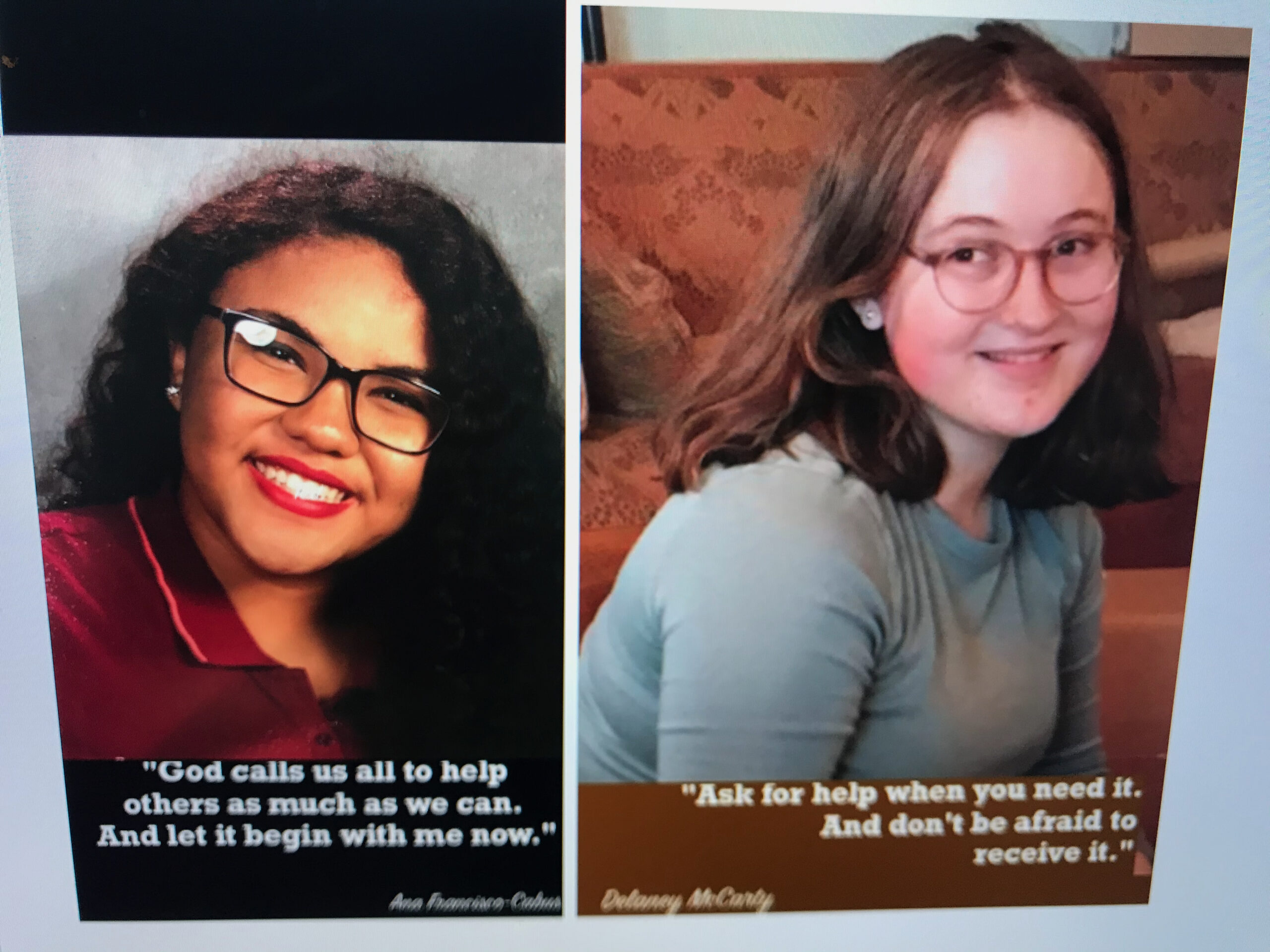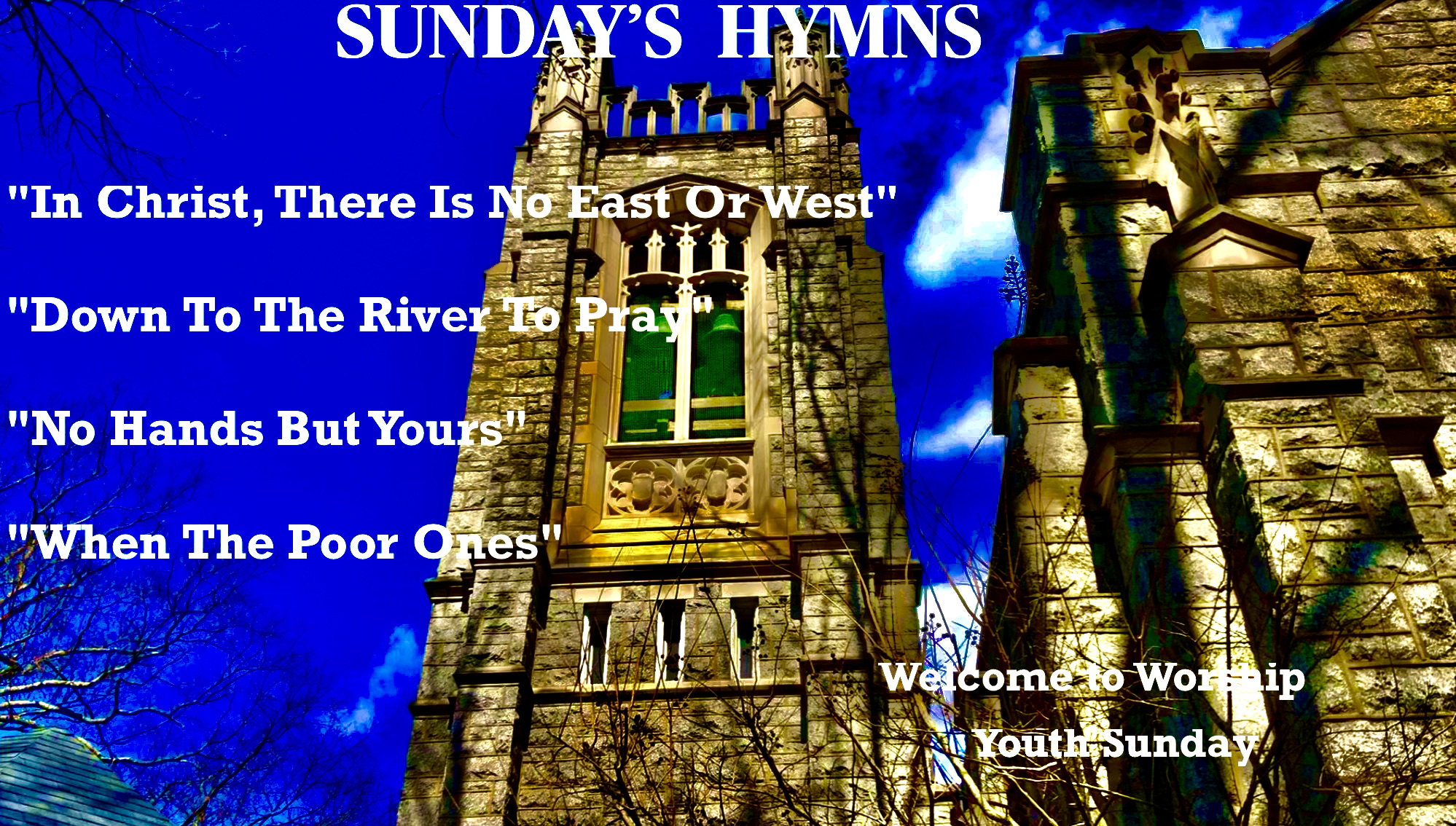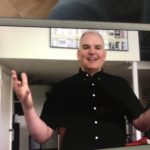

Sunday, February 28
Ecclesiastes 9:11 – Again I saw that under the sun the race is not to the swift, nor the battle to the strong, nor bread to the wise, nor riches to the intelligent, nor favor to those with knowledge, but time and chance happen to them all.
 Photo by Keisha Finnie. In June 2020, Keisha Finne worked with artists Adam Serrano, Kaya Hobbs andKearasten Jordan to create a mural in memory of Black lives lost to police brutality, called “Say Their Names”. The mural is in Lancaster, PA.
Photo by Keisha Finnie. In June 2020, Keisha Finne worked with artists Adam Serrano, Kaya Hobbs andKearasten Jordan to create a mural in memory of Black lives lost to police brutality, called “Say Their Names”. The mural is in Lancaster, PA.
“In a 2017 nationally representative study on prevalence of institutional discrimination in America, NPR, the Robert Wood Johnson Foundation, and the Harvard T.H. Chan School of Public Health found that 60% of Blacks (49% in urban areas and 67% in suburban areas) reported that they or a family member had been unfairly treated or stopped by a police officer due to race, compared to 27% of Hispanics, 13% of Asians, and 6% of Whites.” Excerpted from On the prevalence of racial discrimination in the United States, January 2019
Derived from a fictional 19th c Irish bartender, written originally in the form of a criticism of the press’ failure to do, is this charge that can be equally given to the church, “to afflict the comfortable, and comfort the afflicted”. Considering the self-reporting of our siblings of color the nation, the press, media, the police, nor the church is successfully comforting the afflicted and offering a level playing field. And our black siblings are dying for it.
Action step: today, with brutal honesty ask if it isn’t way past the time when we as United Methodist discard any reservations about antiracism relating to white fragility and our fears of losing members and support. Here the voice of Jesus as George Floyd cries out, “You’re going to kill me, man. Can’t believe this, man. Mom, love you. Love you. Tell my kids I love them. I’m dead.”
Prayer: On Reading “How to Be an Antiracist”
God of all things, help me now.
I want to be an ally to my black brothers and sisters.
I want to be an ally to my brown brothers and sisters.
I want to be an ally to all who are oppressed by racist systems and policies.
And so I fight for their right to get the same education that I had.
For the right to acquire the same wealth that I have.
For the right to live in a “good” neighborhood as I do.
For the right, in short, to be like me.
And as I pray this, O God, my words convict me of my sin.
Why do I privilege my reality as the one that everyone should desire?
God, help me fight for the right for everyone to be themselves –
to live and love and speak from their own hearts.
Give me the courage to admit my false sense of superiority.
Give me eyes to see others as you see them.
To celebrate their distinctive ways of being in the world.
To honor their culture; to honor their values.
Holy One, open my ears. Open my eyes. Open my heart.
Lead me into humility. Call me into love.
Amen.
Elizabeth Moore, OSL
Abbot, the Order of Saint Luke shared on August 6, 2020 by UMC Discipleship’s Praying for Change: Daily Prayers for Anti-Racism Email





 Photo by
Photo by  James Cone, Illustration: Uzo Njoku (UVA ’19)
James Cone, Illustration: Uzo Njoku (UVA ’19) The bronze statue (by Hank Willis Thomas) called "Raise Up" is part of the display at the National Memorial for Peace and Justice, shown on April 23, 2018. Brynn Anderson / AP. The National Memorial for Peace and Justice, which opened to the public on April 26, 2018, is the nation’s first memorial dedicated to the legacy of enslaved Black people, people terrorized by lynching, African Americans humiliated by racial segregation and Jim Crow, and people of color burdened with contemporary presumptions of guilt and police violence. It is located in Montgomery, AL.
The bronze statue (by Hank Willis Thomas) called "Raise Up" is part of the display at the National Memorial for Peace and Justice, shown on April 23, 2018. Brynn Anderson / AP. The National Memorial for Peace and Justice, which opened to the public on April 26, 2018, is the nation’s first memorial dedicated to the legacy of enslaved Black people, people terrorized by lynching, African Americans humiliated by racial segregation and Jim Crow, and people of color burdened with contemporary presumptions of guilt and police violence. It is located in Montgomery, AL. Christ of Maryknoll by Br. Robert Lentz, OFM
Christ of Maryknoll by Br. Robert Lentz, OFM Area faith leaders condemn police brutality in
Richmond, VA, in 2020.
Image from the Richmond Times-Dispatch.
Area faith leaders condemn police brutality in
Richmond, VA, in 2020.
Image from the Richmond Times-Dispatch. Norman Rockwell’s desire to reach out to a global community and emphasize the commonality of humankind found its forum on the cover of The Saturday Evening Post with his
masterful work, Golden Rule, in 1961.
Norman Rockwell’s desire to reach out to a global community and emphasize the commonality of humankind found its forum on the cover of The Saturday Evening Post with his
masterful work, Golden Rule, in 1961. Jesus’s face as created by artificial intelligence
Artbreeder software and Bas Unterwijk.
(Image:
Jesus’s face as created by artificial intelligence
Artbreeder software and Bas Unterwijk.
(Image: